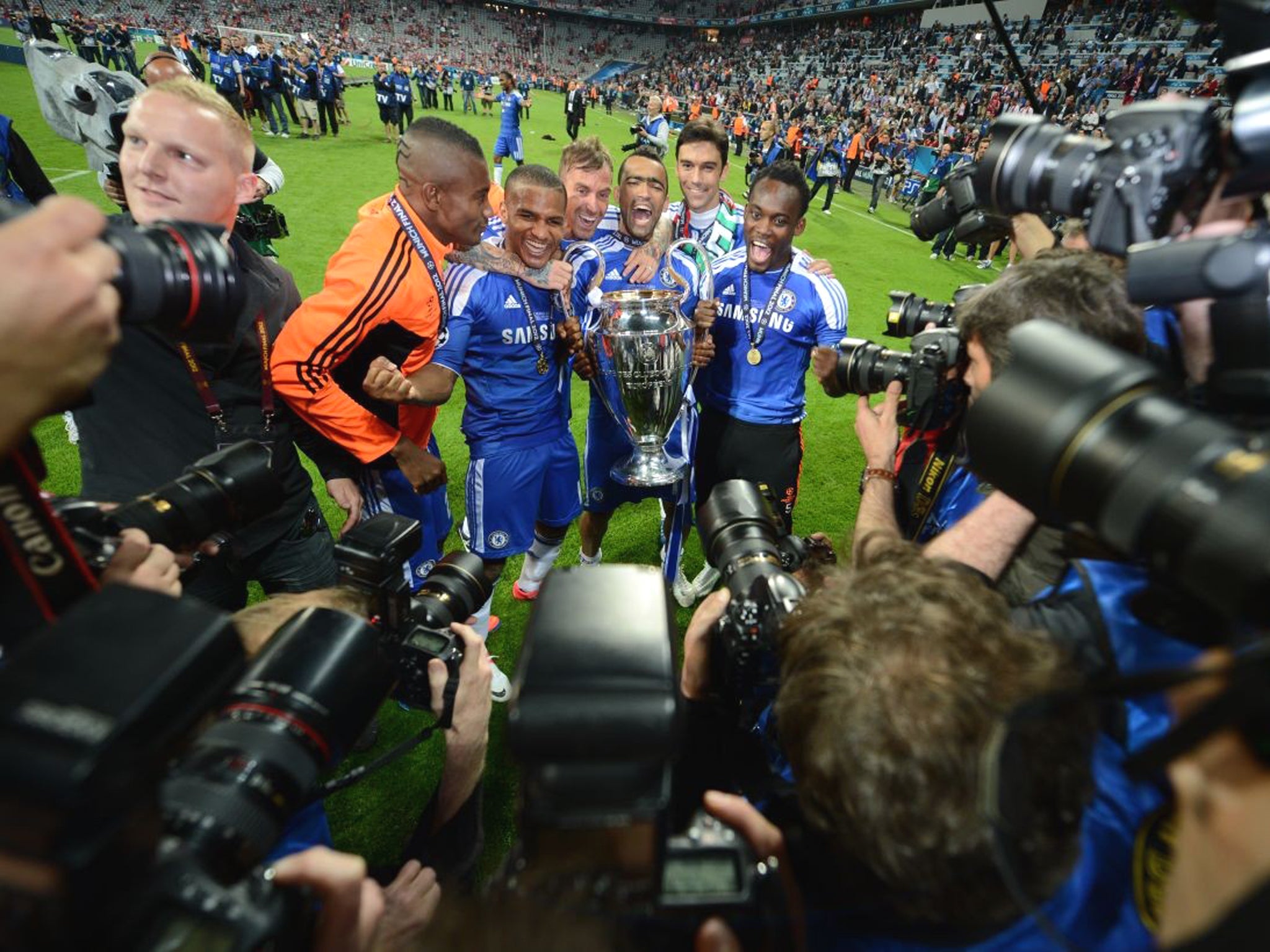Football left in crisis by police report that says match-fixing is rife
Champions League game in England is one of 700 fixtures that Europol say are under suspicion

Your support helps us to tell the story
From reproductive rights to climate change to Big Tech, The Independent is on the ground when the story is developing. Whether it's investigating the financials of Elon Musk's pro-Trump PAC or producing our latest documentary, 'The A Word', which shines a light on the American women fighting for reproductive rights, we know how important it is to parse out the facts from the messaging.
At such a critical moment in US history, we need reporters on the ground. Your donation allows us to keep sending journalists to speak to both sides of the story.
The Independent is trusted by Americans across the entire political spectrum. And unlike many other quality news outlets, we choose not to lock Americans out of our reporting and analysis with paywalls. We believe quality journalism should be available to everyone, paid for by those who can afford it.
Your support makes all the difference.The shocking scale of global match-fixing in football organised by criminal syndicates based in Singapore and the Far East was laid bare yesterday, with a Champions League tie played in England among nearly 700 games authorities believe might have been fixed.
It was reported last night that Liverpool's 2009 game against Debrecen of Hungary is under investigation. There is no suggestion the Anfield club had any involvement or are suspected of any wrongdoing. Dozens of World Cup and European Championship qualifying games, Europa League ties and domestic games in various continental leagues also face scrutiny.
In total, 380 European matches are under suspicion, with a further 300 in Africa, Central and South America and Asia also identified. "This is a significant threat to the integrity of football," said Rob Wainwright, director of Europol, the European Union's law-enforcement agency, which co-ordinated the operation.
"This is the work of a suspected organised-crime syndicate based in Asia and operated with criminal networks around Europe. It is clear to us this is the biggest-ever investigation into suspected match-fixing in Europe." The English Champions League game is still being investigated, meaning the authorities are refusing to release any further details.
Yesterday's announcement was the culmination of an 18-month investigation, Operation Veto, overseen by Europol and involving five European countries. The investigation has been driven by prosecutors and police in Bochum, Germany, who have carried out a number of successful prosecutions over games in the country's lower leagues as well as the bribing of a referee to fix a World Cup 2010 qualifier between Liechtenstein and Finland.
The investigation into the game in England is likely to focus on match officials rather than the clubs involved. The modus operandi of fixers is to target referees for larger fixtures – it costs less to bribe one man rather than a number of players.
Players tend to be approached to fix games in some of Europe's lesser leagues – Finnish authorities last year convicted 11 men over fixing. In all, Europol claims 425 individuals, including match referees, club officials, players and "serious criminals", are suspected of being involved in attempts to fix games in 15 countries.
Six of the suspects are resident in the UK. Information for the investigation was received from sources across Europe, including the Isle of Man and Alderney. Last year, Wilson Raj Perumal, a Singaporean, was sentenced to two years in prison as part of the Finnish investigation. He is now in custody in Hungary. Perumal is believed to have links to another Singaporean, Tan Seet Eng.
Tan is reported to be at the heart of one of the leading fixing syndicates and is the subject of an international arrest warrant issued by Interpol, and wanted by authorities in Italy and Hungary. Tan has links, according to German authorities, with attempts to fix a Premiership match in 1999.
The illegal-betting market is estimated by Interpol to be worth £58bn. Its figures are disputed but German investigations have uncovered more than €8bn made in betting profits and another €2m in corrupt payments.
Most of the betting takes place via illegal markets in the Far East, though some is through established bookmakers in Europe. Fixing does not mean a definite result is arranged for a particular game, though that does happen, rather that there might be a certain number of goals, or penalties, scored in the second half.
Join our commenting forum
Join thought-provoking conversations, follow other Independent readers and see their replies
Comments